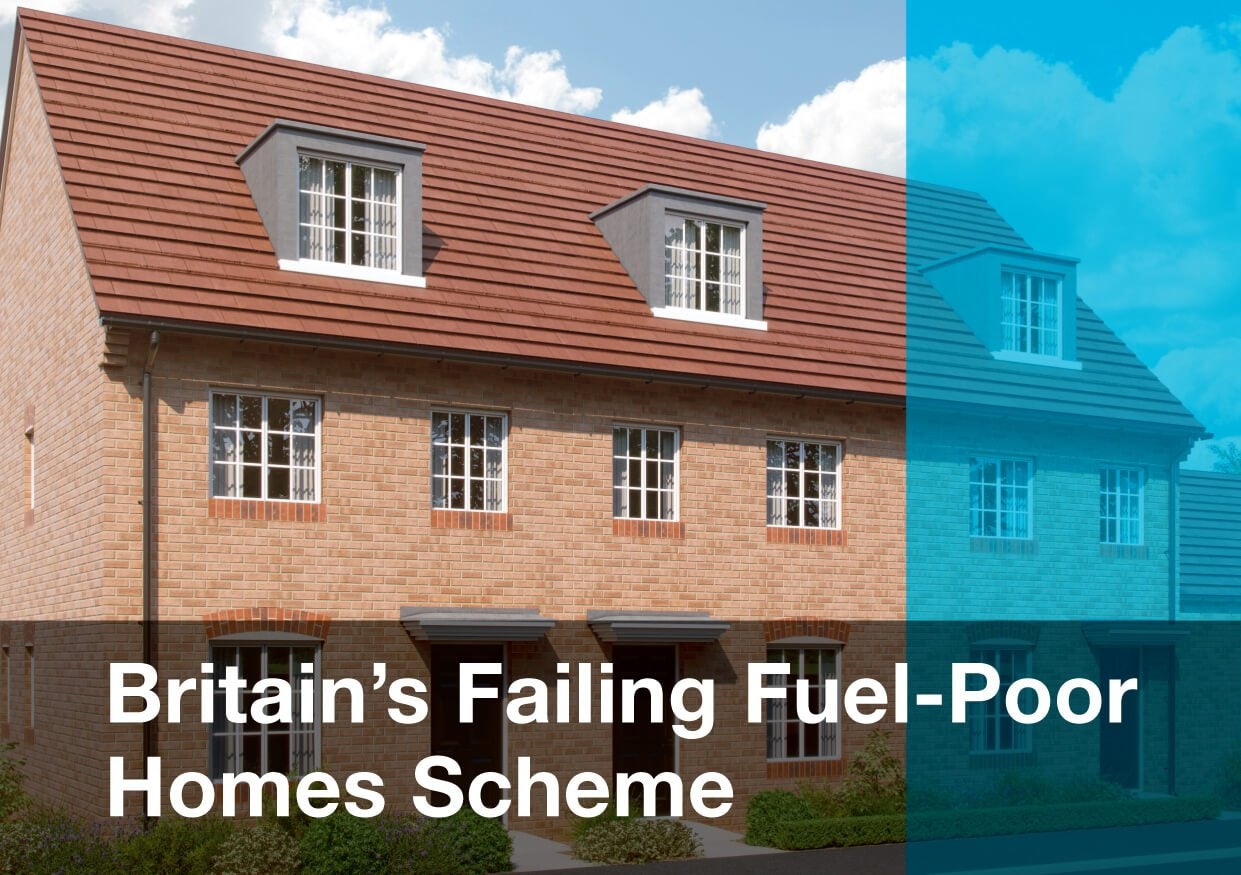Britain’s Failing Fuel-Poor Homes Scheme
As of 2016, 2.5 million UK homes were classified as fuel-poor, defined as households that would fall below the poverty line after energy costs have been deducted from income.
An estimated 17,000 deaths have been directly attributed to this statistic, and subsequently, UK government has devoted a significant amount of attention and resources toward schemes intended to curb this problem. However, despite being well-intentioned, fumbled execution and low public awareness has resulted in many of these initiatives continuing to fall drastically short of overly ambitious targets. The Green Deal, for example, offered loans to consumers seeking to perform energy-efficient home improvements, however was scrapped after just over 2 years, delivering negligible benefit.
A new government programme, ECO, has since been introduced (and had 40% of its funding slashed) intending to upgrade all fuel-poor homes to an EPC (energy efficiency rating) of C or higher by 2030. The reasoning behind the initiative is solid, fuel-poverty increases dramatically with lower energy ratings, with G-rated homes reaching figures £1,482 per year. Unfortunately, however, a report published in July by think tank IPPR, titled “Beyond ECO: The Future of Fuel Poverty”, demonstrates that at the current rate of installations, this target won’t be achieved until 2091 at the earliest, over six decades behind schedule. The think tank has called for a “fundamental reform” of the scheme, suggesting this year’s scheduled relaunch of the scheme (with an updated plan for 2018-2022) needs to address a much wider range of problems than currently slated.
Criticisms expressed in the report include; ineffective delivery mechanisms, regressive funding models, and primarily, ineffective eligibility criteria, resulting in only 30% of funds being eventually allocated to fuel-poor residents. Luke Murphy, IPPR’s associate director for energy, climate, housing, and infrastructure, states: “The Energy Company Obligation [ECO] is not delivering for the fuel poor households it is designed to help; at its current rate of delivery, hundreds of thousands of fuel-poor households will be left out in the cold until the end of the century.”
Of the total number of households currently living in poverty, a staggering 92% live in homes energy rated D or below. Wasted energy serves no purpose, yet places enormous and unnecessary financial burden on consumers, and contributes to needless environmental impact through its production methods.
Fuel-poverty is a complex and multifaceted problem; however, it is Dashboard’s firm belief that poor household energy efficiency should not remain an aggravating factor. Countless proven and highly cost-effective solutions are readily available: from insulation and double glazing, to modern heating systems and appliances, through to smart home IoT-enabled solutions. In an ideal scenario, initiatives such as this have the capacity to drive exciting and innovative technology into the homes of everyday people, along with the associated savings and benefits currently enjoyed primarily by the private sector.
The UK is a world-leader in technology and innovation, and IoT technology has enabled countless applications with the potential to benefit society, in health, transportation, our environment, and much more. We believe Government-led initiatives to be pivotal in the delivery and implementation of these capabilities, and we hope future efforts can produce better results.
